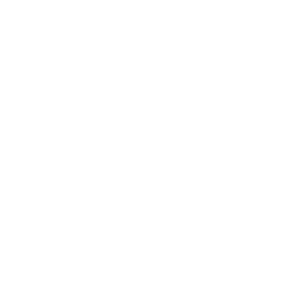Agency plea over climate warning
- Published

Carbon capture is described as "woefully off pace" in the report
Leading energy ministers have been told the world is on track for a long-term temperature increase of 6C unless they change their priorities.
The International Energy Agency (IEA) said on current trends, emissions would double from 2009 to 2050.
The deputy director of the IEA, Richard Jones, urged ministers: "Please take our warning seriously."
He was speaking at the Clean Energy Ministerial, a forum for 23 major nations.
Mr Jones said the world could still possibly hold CO2 under 32Gt - the level equated with a 2C temperature rise - but only if nations co-operated urgently on clean technology.
The report <link> <caption>Tracking Clean Energy Progress</caption> <url href="http://www.iea.org/papers/2012/Tracking_Clean_Energy_Progress.pdf" platform="highweb"/> </link> , says: "The current trend of increasing emissions is unbroken with no stabilisation of GHG [greenhouse gas] concentrations in sight." It projects that if this continues, "energy use will almost double in 2050, compared with 2009, and total GHG emissions will rise even more. Long-term temperature rise is likely to be at least 6C."
Mr Jones presented a traffic light scorecard. Of 11 technologies to reduce emissions, only renewable power - particularly from wind and solar - merited a green for being on track.
Fuel economy, electric vehicles and industry were given an amber.
Most of the chart is red, including biofuels for transport; building efficiency; nuclear power; carbon capture and storage in industry and power generation; and cleaner conventional coal.
Sex appeal
Mr Jones said countries were still ignoring easy gains in energy efficiency. It is less "sexy" than some other policies, he admitted - but it is especially good at creating local jobs.
Coal is another concern for the IEA. Energy-hungry emerging economies are still building old-style power plants with an efficiency of just 35% whilst modern plants running at very high temperatures like those built in Japan are 50% efficient or more.
Carbon capture and storage (CCS) - in which CO2 emissions are captured and pumped into underground rocks - is described as "woefully off pace".
In 2008, Roger Harrabin visited the Isogo 1 plant in Yokohama, Japan, one of the most advanced coal-fired power stations in the world
Under their scenario for stabilising global temperature rise at 2C, the IEA envisages CCS providing 19% of global emissions cuts.
Mr Jones said that 65 CCS plants are on the drawing board, but not one is operating at scale. Only four small projects carry out sufficient monitoring to demonstrate permanent storage of CO2, he said.
"CCS remains trapped in its infancy. Many fear it will remain stillborn," he explained. This would be grave, he said, as so many countries will rely on coal-fired power stations for the next 40-50 years until they wear out.
Mr Jones said the main reason for the CCS failure is lack of government will. But one government source told ┤¾¤¾┤½├¢ News it was difficult for politicians to provide the billions needed to kickstart CCS when the investment did not actually provide energy - unlike renewables.
Mr Jones said countries needed to be bold with their investments and policies, even during a recession to reap the benefit of plentiful clean power in later years.
'False economy'
This was not just about preventing the potential of dangerous climate change, he said. Investment in clean energy would bring energy security, reduce dependency on oil and save money that would be needed to adapt to climate change.
"Five trillion dollars of investment is needed in a decade. In the long term it will lead to net savings. Delay is false economy," he said.
He said one bright spot had been the emergence of wind and solar photovoltaics. In both technologies, he said, costs are plummeting as firms scale up production prompted by government policy.
Globally, more than $1 trillion had been invested in clean energy, and in Europe investment in renewables now outstrips that for fossil fuels.
But the meeting's chairman, the UK Energy Secretary Ed Davey, warned that renewables investment fell significantly in the first quarter of 2012.
He said: "The risk is that recession delays low-carbon investment, leaving us a high-carbon legacy even when the global economy recovers, making meaningful action on climate change more expensive."
Mr Davey also announced today a £35m fund to prompt small entrepreneurs in the UK to devise low carbon. The first wave is in energy efficiency for buildings, including advanced lighting, heat pumps and ventilation technologies.
Mr Davey earlier told ┤¾¤¾┤½├¢ Today programme that the government was relying on the Green Deal to provide insulation to millions of homes, to cut emissions. The Green Deal has been under fire from some people sceptical that the climate will change as much or as fast as projected.
The government also announced that it would allocate up to 60 million to support CCS in emerging markets.
The IPCC's Fourth Assessment Report, published in 2007, gave estimates for warming of between 1.8C and 4C under different scenarios during the 21st Century.
The IEA projections are based on work done with the modelling group developing scenarios for the IPCC Fifth Assessment Report. The 2C target is designed to offer an 80% likelihood on best estimates of staying within the 2C threshold.
- Published25 April 2012
- Published19 April 2012